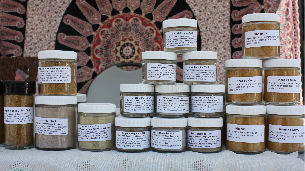What are Probiotics?
If you're not familiar with probiotics, probiotics are cultures of "good bacteria". Your gut contains a combination of both good and bad bacteria. Probiotics help ensure a good balance of intestinal flora.
When we use the word probiotic, most of the time it's referring to a supplement. However, the term can also be used when talking about fermented foods, as they also contain good bacteria.
How to Take Probiotics?
Many people know the benefits of adding probiotics, "friendly bacteria", to their health regimen and take them either as a supplement or consume them in fermented foods that have active live cultures, such as yogurt, fermented pickles or fermented sauerkraut.
If you are taking a probiotic supplement, it is best to take it on an empty stomach when you wake up in the morning or before bed. When you first get up, take the probiotic, and then get ready for the day preferably waiting at least 30 minutes before you eat breakfast.
You can also take the probiotic with food and still get pretty good absorption. The reason this may decrease some absorption of a supplement probiotic is that the probiotic ends up spending more time in the stomach. Also, another reason to take them on an empty stomach is because before the journey to the intestines, the bacteria will have more difficulty surviving the harsh stomach acid during digestion, affecting their potency.
But, don't take them after a meal! Probiotics that are taken after a meal have even more difficulty surviving stomach acid levels as this is when your stomach acid is at its highest. A study from last year found that when a probiotic supplement was taken after a meal, extremely low levels of bacteria survived.
How Else to Get Probotics?
You don't have to take probiotic supplements to ensure healthy intestinal flora, you can also make fermented foods! It is best to make them yourself and not rely on store bought fermented foods as they are often preserved in salt rather than in lactobacterial-salt.
Benefits of taking Probiotic or Fermented Foods:
1. Improved digestion
2. Healthier gut
3. Improved absorption of vitamins, nutrients, and minerals
4. Reduction in cavities
5. Increased resistance to infection, reduces risk of flu and colds
6. Reduced risk of colon cancer
7. Beneficial for irritable bowel syndrome, Chron's disease, etc.


















